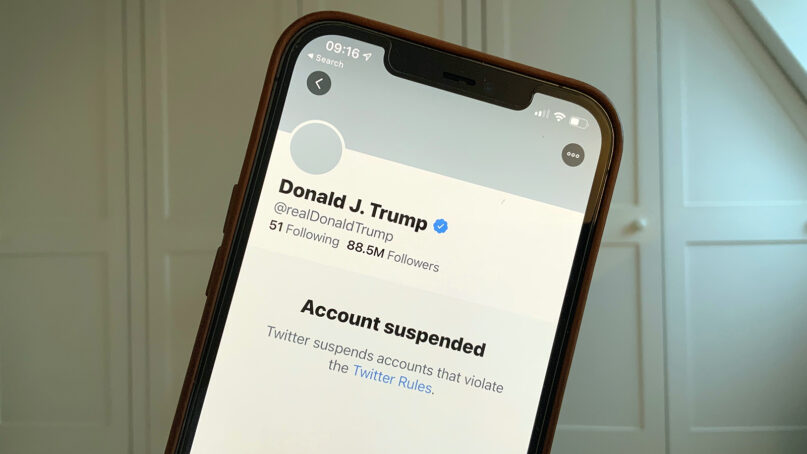(RNS) — Twitter’s cancelation of President Trump’s account in the wake of his alleged egging on of followers — some of whom stormed the Capitol last Wednesday (Jan. 6) — has been assailed by free speech advocates. The outcry grew when Parler, an alternative favored by Trump supporters, was deplatformed by Amazon.
Though it’s true that private companies are not bound by the First Amendment’s guarantee of free speech, that common response to the controversy isn’t the whole story: Free speech is as much a moral issue as a legal one. Justice Oliver Wendell Holmes Jr.’s famous exception to the principle of free speech — “Shouting fire falsely in a crowded theater” — shows that it is often both.
Even in the context of contemporary mores, freedom of speech simply isn’t an absolute.
Nowhere is this more deeply held than in Judaism’s teaching. The Talmud, the repository of the Jewish tradition’s wisdom and laws, recognizes the power of speech as what sets humankind above the animal kingdom, and thus has powerful potential for both good and the opposite.
Generally speaking, the operative Jewish principle is that, in the Talmud’s words: “Evil speech kills.”
This is a stark contrast with the norms of the modern world, where little heed is paid to revealing bad things about people, particularly those in the public eye, unless it rises to slander or libel — and even then, the disincentive of a lawsuit is financial, not ethical.
RELATED: If you’ve got Jesus in your profile, don’t be nasty on your timeline
But if no one can reasonably expect society to hew to ancient Jewish wisdom, it shouldn’t be asking too much to mute speech that may result in actual murder. Inciting a riot is one example. Tapping out an incendiary falsehood for the consumption of millions that could result in harm to innocents is no different. Stampedes aren’t the only ways people get hurt.
Jews know this to be true from recent experience. In 2018, Gab, a “free speech” platform favored by the far right, was forced offline after it lost support from its server hosting companies that gave it access to the internet. In the name of free speech, Gab had allowed the posting of anti-Semitic rants by a man named Robert Gregory Bowers.
Bowers is the alleged murderer of 11 people at a Pittsburgh synagogue in October of 2018. Gab later came back online with the help of a different hosting company, Epik.
Parler, freshly deplatformed, just registered its domain with that same company.
Given the First Amendment’s protections, there may be no effective way for the U.S. government to regulate companies that permit determined purveyors of hatred and incitement to spread their fetid ideas far and wide. Given our fascination with our internet forums, it seems more impossible that moral sanctioning will do what legal deterrents can’t.
But we must try. As the Talmudic rabbis admonished: “The work isn’t upon you to complete, but neither are you absolved to abandon the task.”
(Rabbi Avi Shafran is director of public affairs for Agudath Israel of America, a national Orthodox Jewish organization. He blogs at rabbishafran.com. The views expressed here do not necessarily reflect those of Religion News Service.)





